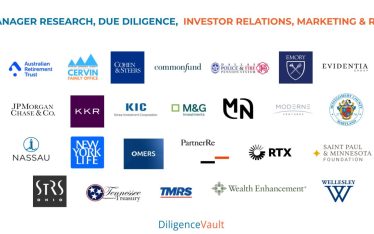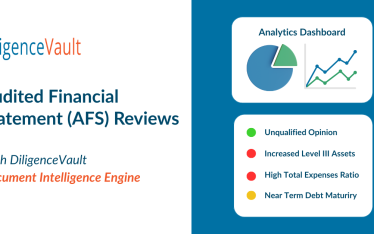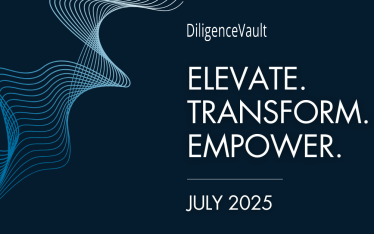Over a month ago, DiligenceVault expanded into the EMEA region with the hiring of our newest Vaulter and EMEA Business Development Director, Guillaume Rouault. Guillaume has made an immediate impact on the team with his sales leadership and invaluable industry experience. We are glad Guillaume is part of Team DV and we look forward to continuing our collaboration and growth together!
Our UK presence was not born overnight, and we did our due diligence (naturally) before making our move. No stones were left unturned during our expansion process, and the result was Diligence Vault (UK) Limited, based out of London.
Now that we have some time to reflect on our expansion, we would like to share some of our key takeaways from our Transatlantic leap.
Entity Structure
One of the first things we looked at was the entity structure, and the options we explored were: (a) Independent Contractors (b) International Professional Employer Organization [PEO] (c) Subsidiary and (d) Branch Office. We see EMEA as a strategic growth region for DV supported by a strong team to complement our long term plans. With an ambitious plan in mind, a subsidiary structure in the UK made the most sense based on the following factors:
Timing
From our research, the fastest way to create an international presence is to hire an independent contractor directly out of that foreign country. However, with speed comes certain risks, such as employment rights, classifications, and loyalty to the firm. Although we wanted to expand quickly, we also wanted to make sure we have the ability to grow seamlessly. An International PEO could also help us expand our UK presence almost immediately, and registering a subsidiary or a branch would have required a longer timeline.
Cost
Given our bootstrapping roots, DV is very vigilant with its costs. During our analysis, we found that an International PEO would be the most expensive option, but it would also provide a fast UK presence while minimizing risks. An International PEO would act as the Employer of Record for DV in the UK and also compliantly hire and onboard UK employees on our behalf.
Control
The downside of using an International PEO, costs aside, is the risk of Permanent Establishment. Depending on the size of the business, the UK tax authorities could potentially claim taxes on revenue originated from the country. We wanted to control our reporting and through either a branch or a subsidiary, we had the option of what we would disclose. If DV was created as a branch, an extension of the DV parent company in the UK governed under US law, all potential liabilities are the responsibility of the US Parent. Plus, the consolidated financials must be disclosed to the UK tax authorities and be made public.
Select Entity Structure Decision Factors
DV Pro-tip: Examine your needs – is this an expansion to test the international markets or a need to service existing international customers?
Documentation & Requirements
Once we decided on the subsidiary structure, we had to gather the required documents to register with the UK government. Luckily, the registration process is similar to that of the US, where the process is completed online. The UK Companies House website has a step-by-step guide on how to register a private limited company. We celebrated the new milestone when we completed our registration and received our Certificate of Incorporation – over Slack as we were all working remotely!
DV Pro-tip: Use the UK government website as your FAQ.
Bank Accounts
Our biggest roadblock in completing the subsidiary set up was opening a UK bank account. Most of the big banks in the UK require company directors to either be present at the bank or be a resident of the country. Since we were in a global pandemic with travel restrictions, we had to think outside the box. We engaged with our existing relationship banks that had a UK presence, and explored virtual banks (we are a technology company, after all). It was interesting to witness different firms work and adapt to the new virtual norm. FinTech entrepreneurs, here’s a call for you to step up and solve these issues for SMEs looking for globalization!
DV Pro-tip: Virtual bank accounts are easy to set up to make payments, but hard to deposit cash or checks.
Solicit Expert Help
During our planning and research phase, we realized that we needed outside help, and that led us to solicit guidance from third-party accounting firms. We interviewed a few teams and ultimately decided on the help of a local UK firm for our legal entity setup, which happens to be a referral from our network. Trust goes a long way! The local team walked us through the formation process and provided important guidance on creating Diligence Vault (UK) Limited. We engaged the local team to help with setting up our accounting, tax, pension, compliance, payroll, and secretarial work functions.
DV Pro-tip: Perform a cost-benefit analysis; global firms have synergistic opportunities when combined with future expansion plans, and local firms are less expensive and more specialized in their home market.
Other Items to Consider
We also looked into the following items during our research: Business Phone Numbers / Employer Liability Insurance / Bespoke Legal Contracts (Employee & Commercial) / Financial Consolidation / Global Tax Planning / Capital & Funding.
While we are still not experts after opening the UK office, we are proud of what we have accomplished. There is still work to be done.
DV Pro-tip: Expanding into a foreign market is akin to investing in the stock market – be prudent, think long-term, manage risks, and understand that there is no one-size-fits-all solution.
The thoughts outlined in this blog should be a good starting point for any tech firm thinking to expand into a foreign market. Every firm should conduct their own due diligence, perform research, and come to a thoughtful conclusion. We hope we have provided a useful synopsis of our reasoning, and who knows, we might use this playbook again to expand into a city or country near YOU!
Disclaimer: The information provided in this blog does not, and is not intended to, constitute legal advice; instead, all information, content, and materials are for general informational purposes only.



